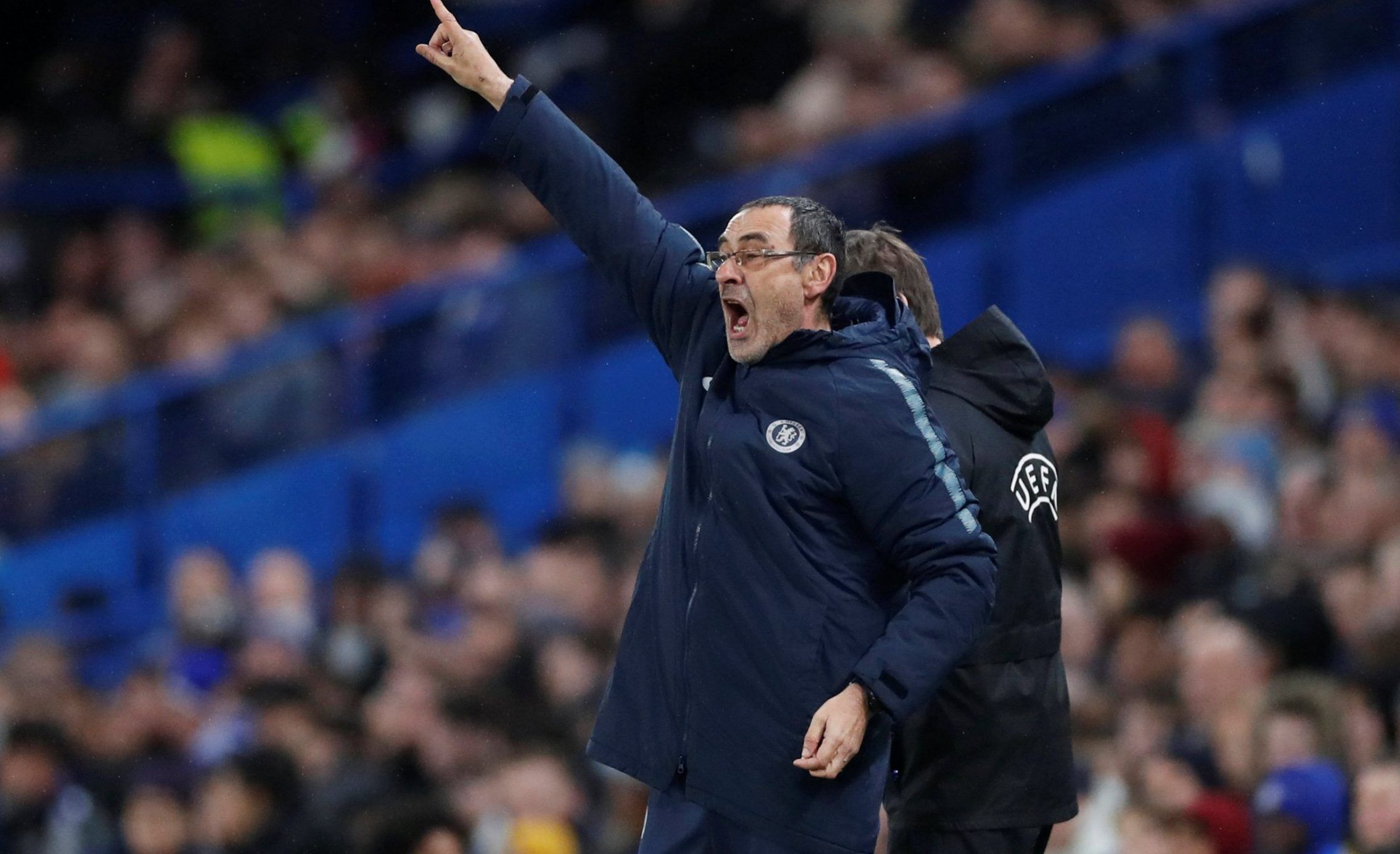[ad_pod ]Maurizio Sarri’s troubles at Chelsea have been well-documented. The Blues have failed to ignite under the Italian’s tutelage, and efforts to emulate the free-flowing football that bore fruit at Napoli have been problematic.Nonetheless, the Blues have enjoyed a recent upturn in their domestic form, winning five games out of their last seven in the league – only defeated by Everton at Goodison Park. It’s also worth remembering that Chelsea failed by the slimmest of margins in their bid to lift the League Cup, losing on penalties to Manchester City in the final. Similarly, the Blues have been imperious in the Europa League, remaining undefeated on the European stage, and they’re widely heralded as favourites to lift the trophy.Further, their pursuit of a top-four place – a quest that seemed unobtainable when Chelsea were at their worst - seems to be a very plausible target. The Blues are now in 3rd place and sit two points clear of Tottenham in fourth, albeit having played a game extra. Superficially, it seems Maurizio Sarri’s inaugural season in West London is developing reasonably well – massively juxtaposed with the hysteria-inducing cries of another crisis at Chelsea. But, is this truly the case?
Critically, Sarri has lost the support of Chelsea’s match-going faithful, arguably the most important category to please. While many will question the extent to which they initially supported Sarri, appointing a manager devoid of trophy-winning experience at a club who have been ruthless winners for the last two decades always seemed to be a precarious fit.
However, Sarri hasn’t endeavoured to endear himself to the Chelsea supporters, and his unwavering stubbornness and unrelenting insistence that his style of play will flourish when discernible evidence suggests otherwise have created a climate of resentment and distance between manager and supporters. As exemplified by the attendance at Stamford Bridge in Chelsea’s 3-0 triumph against Brighton, Chelsea’s worst attendance since 16 January 2013.
The system’s inability to utilise Chelsea’s players has been perceptible, particularly against better opposition, yet Sarri has persisted – much to the fury of Chelsea supporters. Sarri’s habit of picking under-performing players in the league, prioritising status over merit, has been another detectable trend – much to the fury of Chelsea supporters. The 60-year-old’s manifest mistrust in young players, particularly Callum Hudson-Odoi who only received his first league start against the Seagulls, has enraged a contingent of supporters, all of whom desperate for the club to reverse its poor record of youth integration.
Resultantly, the Chelsea squad has largely been devoid of competition, especially in the Premier League, which has impacted adversely on the form of certain players. To his credit, Sarri made seven changes against Brighton and, unsurprisingly, by picking players in good form, his side produced one of its best renditions of ‘Sarriball’, particularly in this calendar year.
While the extent of Chelsea’s rotation against Brighton was very much opposed to the norm that Sarri has established, his team selection on Monday night against West Ham United provided another telling slice of evidence to suggest Sarri is finally willing to entrust the breadth of his squad in the Premier League. Loftus-Cheek and Hudson-Odoi retained their starting positions against the Hammers – despite legitimate pre-match fears among Chelsea supporters that Sarri would revert to his favoured eleven and predictable decision-making. By February, the Italian had substituted Barkley and Kovacic (or vice versa) 17 times in the league, hardly intuitive or enterprising.
Similarly, Sarri continues to favour Marcos Alonso and Gonzalo Higuain in the league, when the pair have been chronically out-of-form, particularly Higuain who has struggled to make the desired impact at Chelsea. That all three of his goals have come against teams already relegated from the top-flight Fulham and Huddersfield - is a damning indictment of his tepid stay in west London.
Furthermore, and perhaps most importantly, there’s no discernible sign of progress under Sarri’s stewardship. At the start of the season, the Blues’ on-field identity, and their ability to play the Italian’s brand of expansive football were tangible. Since then, particularly since losing to Tottenham 3-1 at Wembley, teams have mastered the art of negating Chelsea – and Sarri has been too stubborn, or perhaps, even incapable of adapting.
Evidence of creative football has been lacking. The Blues have only come from behind to win on two occasions this season, both of which were against Cardiff City – a team blighted by the mounting threat of relegation. Their ability to overturn a 1-0 deficit wasn’t the product of Sarri’s intricate and highly-technical system. Instead, it stemmed from direct football in its purest form – route-one with a target man in attack, one of the few occasions that Sarri has been willing to part with his rigid system. Coincidentally, he only seems prepared to adapt when his job security is at its most fragile.
Fundamentally, Sarri’s appointment has failed to establish the desired result, and unless the former Napoli manager exhibits a willingness to adapt his rigid way of playing, then his time at the club could be wearing thin. Chelsea have scored the fewest amount of goals (57) in comparison to the league’s top-six, and the Blues have fired a blank in eight league games this season.
These statistics infer two conclusions. Firstly, Chelsea’s players are incapable of playing Sarri’s football, which is demonstrably untrue when assessing the Blues’ start to the campaign – Chelsea were unbeaten in their first 12 league games, scoring 27 goals (then the second highest total in the division), thereby demonstrating their ability to play Sarri’s football. The deterioration in form has derived from Chelsea’s inability to adapt against teams who understand how to nullify them. Even if the said conclusion is true, and the implementation of his football would be eased by the purchase of better and more technical players, Chelsea’s potential transfer ban would impede on the Italian's ability to succeed at Chelsea.
Secondly, Sarri’s system is failing to get the best out of his players. From the players who were already at Chelsea before the Italian’s arrival, it seems that Eden Hazard having registered 28 goal contributions (16 goals, 12 assists) and David Luiz who has emerged from the shadows, ostracised by Antonio Conte, have been the sole beneficiaries.
A manager’s role, first and foremost, is to utilise his players to the maximum extent; Sarri is failing in this regard. Essentially, Sarri was appointed at Chelsea to introduce attractive football, and thus, it would be illogical and unreasonable to expect Sarri to abandon his preferred style. However, that doesn’t mean he should continue to select underperforming players, persisting with a strategy that has become so predictable and, subsequently, relatively simple to negate.
The obvious brilliance of Eden Hazard, who has been involved in almost half of the Blues’ 57 Premier League goals, has papered over gaping cracks at Chelsea. Sarri has encountered problems that haven’t been of his making at the club yet, for the most part, he has been utterly incapable of neutralising issues, many of which have been self-made.



